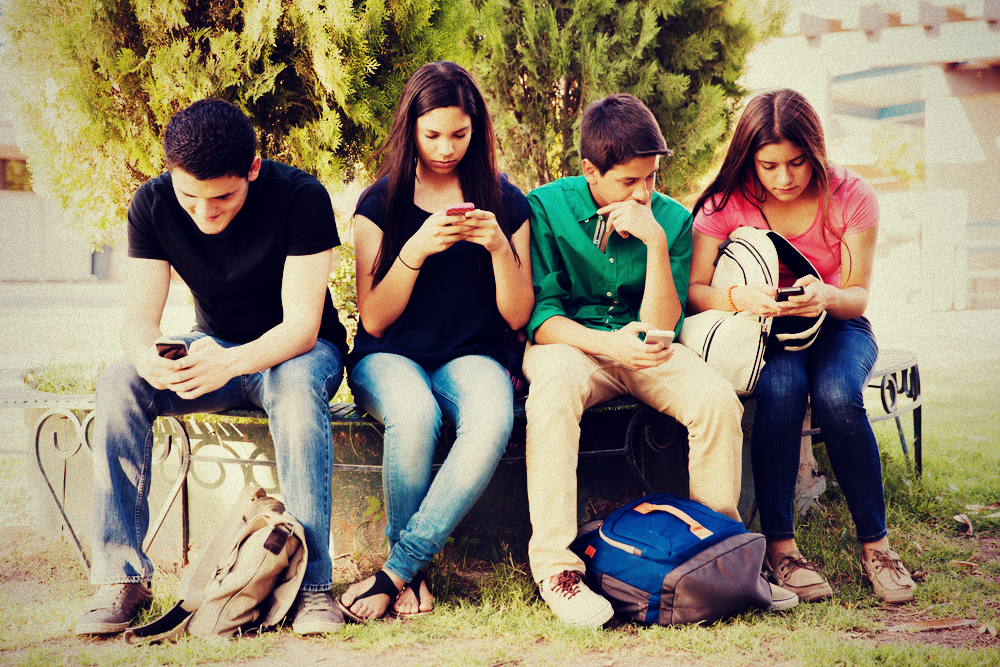There’s no doubt that technology has made our world just a bit more wonderful. As with anything that brings change for the better, there will always be an aspect that tries to spoil the party. The way to not let it is to understand it. So here we go …
Scientists have found an unexpected cost of digital technology – the ability to read emotions.
The rise in digital media has seen a decrease in face-to-face interaction. Teenagers are leading the trend, reporting texting as the primary and preferred means of communication.
A UCLA study has found this might dampen the ability to read emotion and nonverbal cues.
What They Did
51 preteens spent five days at a nature camp where television, computers and mobile phones were banned. (A 5 day devices embargo. Have you stopped shaking yet?)
Another group of 54 children continued as usual with their digital devices.
At the beginning and end of the five days students were shown 48 pictures of faces that were either happy, sad, angry or scared and asked to name the feeling.
They also watched videos of actors and were asked to describe the characters’ emotions.
Researchers noted the number of errors the students made in identifying the emotions.
What They Found
The students who had the five day embargo on smartphones, televisions or any other digital screens were significantly better at reading emotions and nonverbal cues than those who were allowed to continue using their digital devices.
The change was the same for boys and girls.
Face to face interaction is critical for developing social skills as it sharpens our ability to read emotions and nonverbal cues such as facial expression, eye contact, tone of voice, posture and spatial distance.
Though the study was done with children, the findings have implications for all of us. Being able to accurately read emotional cues is critical for successful relationships and is associated with personal, social and academic outcomes.
We need to be able to read other people accurately to make the split-second, often automatic, decisions around our own behavior and reactions.
Patricia Greenfield, a Professor of Psychology at UCLA explains, ‘Decreased sensitivity to emotional cues – losing the ability to understand the emotions of other people – is one of the costs. The displacement of in-person social interaction by screen interaction seems to be reducing social skills.’
It’s taken us thousands of years to master the art of the face-to-face interaction and we (as in all of us) still get it terribly wrong at times. What’s interesting is how texting has been adapted (the teens are supreme at it) to communicate emotion and enhance connectedness through the use of abbreviations, emoticons, and affectionate names.
A recent study has shown bonding and feelings of closeness to be significantly closer during person to person interactions than by text – no surprises there.
Interestingly, the study also showed that feelings of connectedness during texting were enhanced with the use of textual cues, such as emoticons, typed laughter and excessive punctuation.
The need to connect is such a fundamental human need, we’ll even find a way to do it digitally. That’s evolution for you.
For better or worse, we can’t get away from relationships – friend, family, colleagues, lover, doctor, teacher, or the guy at the local café who remembers your fondness for cinnamon. Our ability to relate, and the extent to which we master this (or are open to continuing to master this) has a vast reach.
Whether face to face or via instant messaging, people are always on the hunt for cues to get a sense of the relationship. Are they liked? Loved? Respected? Appreciated? Forgiven? Boring you? Have they messed up? Gone too far? Not far enough?
Perhaps our task as the ancestors of the future is to keep our ability to read the emotions of others finely tuned, and to ensure that our love affair with digital communication doesn’t dull our capacity to read and respond to others.
The findings of this study serve as a warning, but the ability to relate is a skill we’ve been honing since the beginning of our time and we’re not about to let it fade now. Our primal human need for connectedness won’t let it.
We may do ‘connecting’ differently for a period, perhaps worse for a while, until we figure out a better way to do it – which we will, because we have to. It’s in our DNA.
[irp posts=”1203″ name=”Proven Ways to Strengthen the Connection with Your Teen”]



Leave a Reply